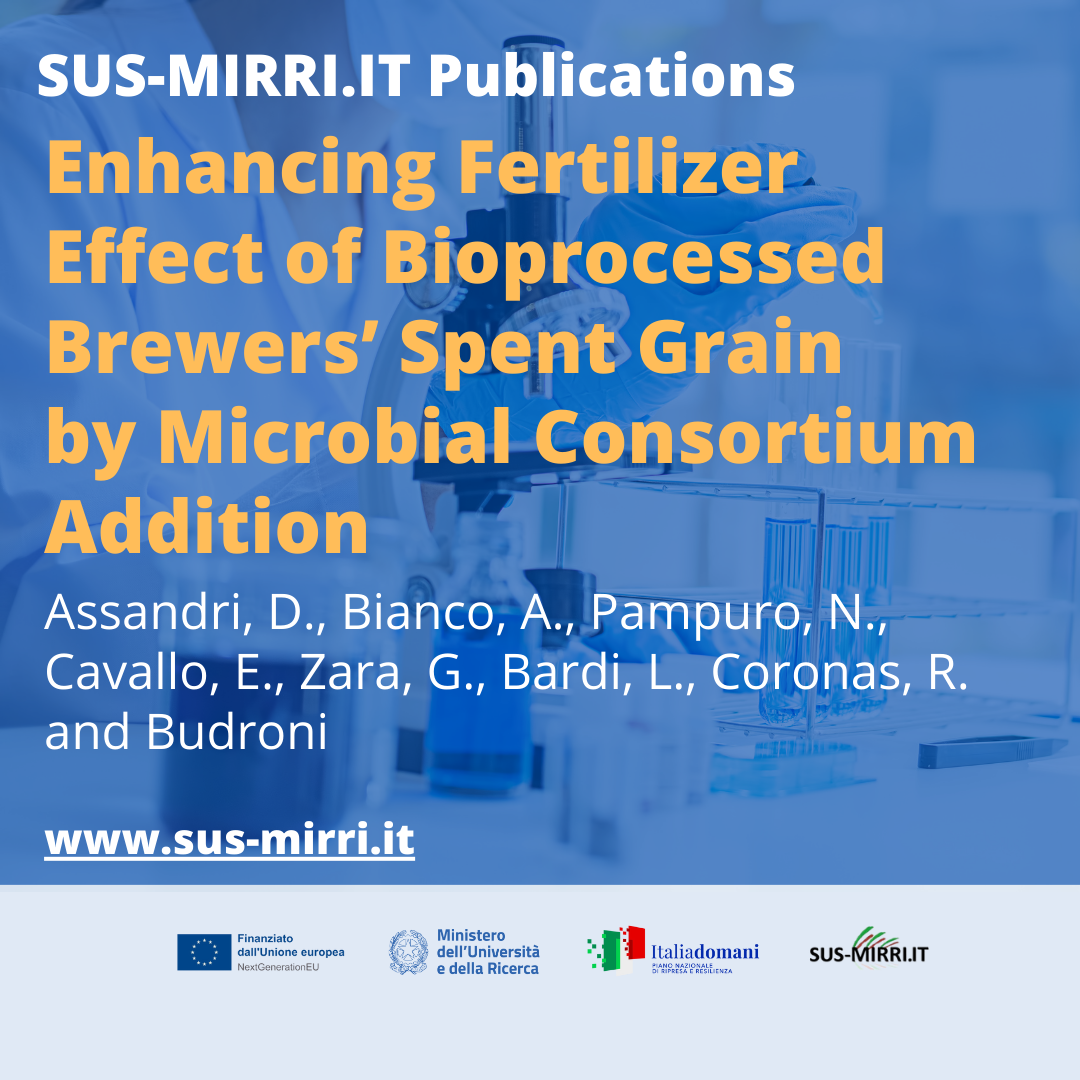Assandri, D., Bianco, A., Pampuro, N., Cavallo, E., Zara, G., Bardi, L., Coronas, R. and Budroni, M. 2023 Enhancing Fertilizer Effect of Bioprocessed Brewers’ Spent Grain by Microbial Consortium Addition. Agronomy Vol. 13(10) 2654 https://doi.org/10.3390/agronomy13102654
Abstract
Brewers’ spent grain (BSG) is primarily recycled as livestock feed due to its high fiber content, undegradable protein, and water-soluble vitamins. However, BSG composting represents a possible alternative to organic waste management. Adding a microbial consortium further enhances the agronomical properties of the compost intended for fertilizing applications. Microbial-based fertilizers (plant growth-promoting microorganisms, PGPM) are a means to mitigate the adverse environmental impacts of excessive or improper chemical fertilizer use, enhance the direct or indirect uptake of nutrients by plants, and add value to food waste. In a short-term pot experiment on iceberg lettuce (Lactuca sativa L.), this study assessed the effects of compost and pelletized compost from brewers’ spent grain, both enriched with a microbial consortium. In a randomized block experiment, this study compared four organic BSG fertilizers to chemical fertilizer (NPK) and an unfertilized control treatment. The investigation indicates that BSG compost and BSG pelleted compost, with and without bio-inoculum, in general, are comparable to mineral fertilizer treatment; lettuce fresh weight was higher in pots amended with bioprocessed BSG, associated with more significant growth of soil LAB, fungi, and actinomycetes. The investigation outcomes support composting as an alternative recycling process for producing PGM for agricultural applications.
For more info please visit: https://www.mdpi.com/2073-4395/13/10/2654



